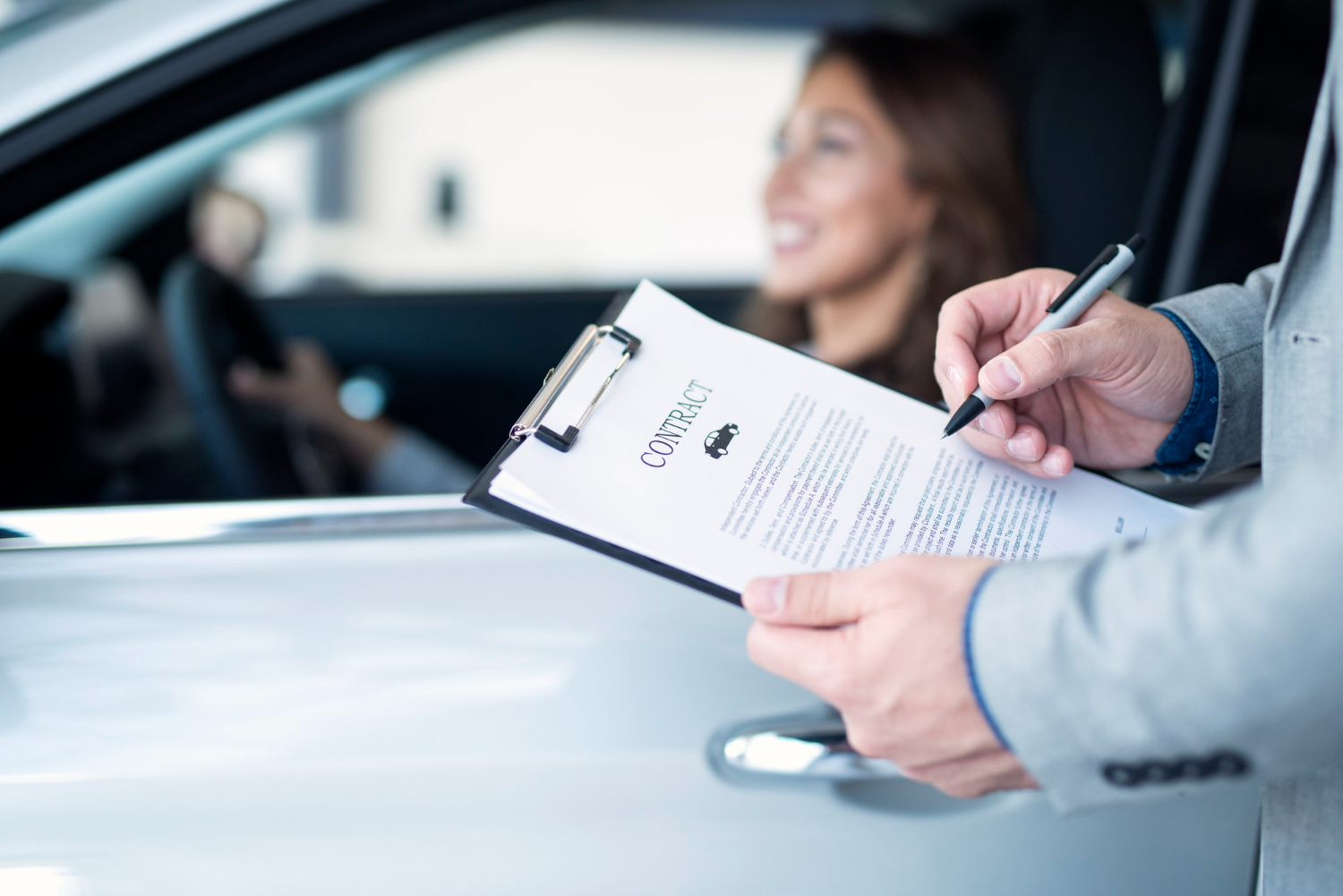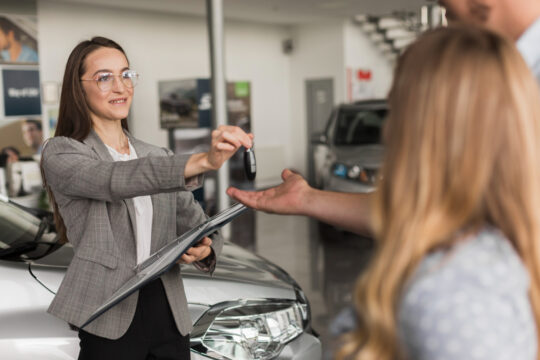
Commercial auto insurance provides liability protection for vehicles you own, lease, or rent during business. It also offers hired and non-owned auto coverage to protect your business when employees use personal, rented, or borrowed cars for work-related reasons.
This essential coverage includes bodily injury and property damage liability, collision loss, and comprehensive physical damage coverage for your business vehicles.
Table of Contents
Comprehensive Coverage
Comprehensive coverage helps protect your vehicles against damage unrelated to a collision. This includes losses like theft, vandalism, and hail damage. It can also help cover the cost to repair or replace your vehicle after a hit from a bird, deer, or other animal — although this type of loss would only be covered if you were not driving at the time (for example, if you swerved to avoid hitting a deer and ended up striking a tree instead). Your car’s value may influence whether comprehensive coverage makes sense for you, and your state or policy contract often sets the limits and deductibles.
This type of coverage is also a good investment if you live where natural disasters or crimes like theft are more common, such as in cities with high populations. However, when your car ages or its value diminishes, the cost of comprehensive insurance may rise, and it may make more sense to save money on premiums by selecting a greater deductible.
Liability Coverage
Businesses of all sizes rely on vehicles- transporting materials and tools to worksites, hauling goods for deliveries, or driving to meet clients. Even a minor accident can have costly consequences, so protecting your business with commercial auto insurance is essential.
Liability coverage protects property damage, medical expenses, and legal fees if your company vehicle is found at fault in an accident. Comprehensive coverage is another must-have, covering your fleet from damage caused by fire, theft, and other non-collision events. Some policies offer optional coverages like towing reimbursement, roadside assistance, and new vehicle replacement cost coverage.
Consider adding hired and non-owned auto coverage. This type of policy adds to your standard liability coverage for accidents that occur when an employee drives a personal vehicle for business or when the business uses a car or truck owned by someone else. Other options include professional liability coverage to help pay for damages resulting from errors and omissions during service and data breach insurance to cover costs associated with a compromised electronic device.
Collision Coverage
Collision coverage helps pay to repair or replace your vehicle if it’s damaged in a covered accident. It usually covers damage caused by hitting another vehicle or object. Still, it can also protect your vehicle if it’s hit by a stationary object such as a fence or building. Like comprehensive coverage, collision insurance typically has a deductible that you choose when you buy the policy. A greater deductible usually results in a lower premium.
You may only need collision coverage if your car is worth little or you can easily afford to repair it yourself after an accident. However, if you lease or finance your vehicle, the lienholder will probably require you to carry collision and comprehensive coverage.
Collision coverage is one of three categories comprising Physical Damage insurance and Comprehensive and Fire and Theft with Combined Additional Coverage (CAC). Adding these optional coverages will help you customize your policy and protect your truck against unique risks. Your independent agent can assist you with determining which coverages are appropriate for you and your truck.
Uninsured/Underinsured Motorist Coverage
In states requiring it, uninsured/underinsured motorist coverage (UM/UIM) helps protect your business when an accident occurs with a driver without insurance or whose liability limits are below state requirements. This type of protection typically consists of two separate types of coverage: Uninsured motorist bodily injury (UMBI) covers medical bills, pain and suffering, and lost wages, and uninsured motorist property damage (UMPD) helps cover repairs to your vehicle.
In some policies, UM/UIM coverage can be paired with medical payments coverage (Personal Injury Protection). If you pair UM/UIM coverage with PIP, the maximum limit of $50,000 for each person injured in an accident will apply to both coverages.
Many business owners also purchase hired and non-owned auto (HNOA) liability coverage, which protects if an employee drives a personal vehicle on business-related errands and has an accident. This type of policy typically offers higher liability limits than standard business auto insurance and may include collision coverage. It also typically does not cover any physical damage to vehicles your business rents or leases.
Medical Payments Coverage
This section of business auto coverage, sometimes known as MedPay, pays for accident-related medical expenditures for you and your passengers, regardless of who caused the crash. It may also pay for lost income if you aren’t able to work due to an injury. MedPay typically costs less than $10 a month.
A regular auto insurance policy won’t cover you if you or your employees drive personal vehicles for business purposes. Most small businesses opt for hired and non-owned auto insurance (HNOA) to protect themselves. This liability coverage helps pay for an accident in a personal or rented car used for business-related errands.
Drivers for delivery services, restaurants, and app-based rideshare companies may also benefit from HNOA. These drivers usually need a commercial policy to ensure they’re covered in case they cause an accident while on the job. It would help to consider adding comprehensive and collision coverage to your policy for the most protection. This will help pay for damage to your company cars and other personal vehicles you or your employees use for business.



